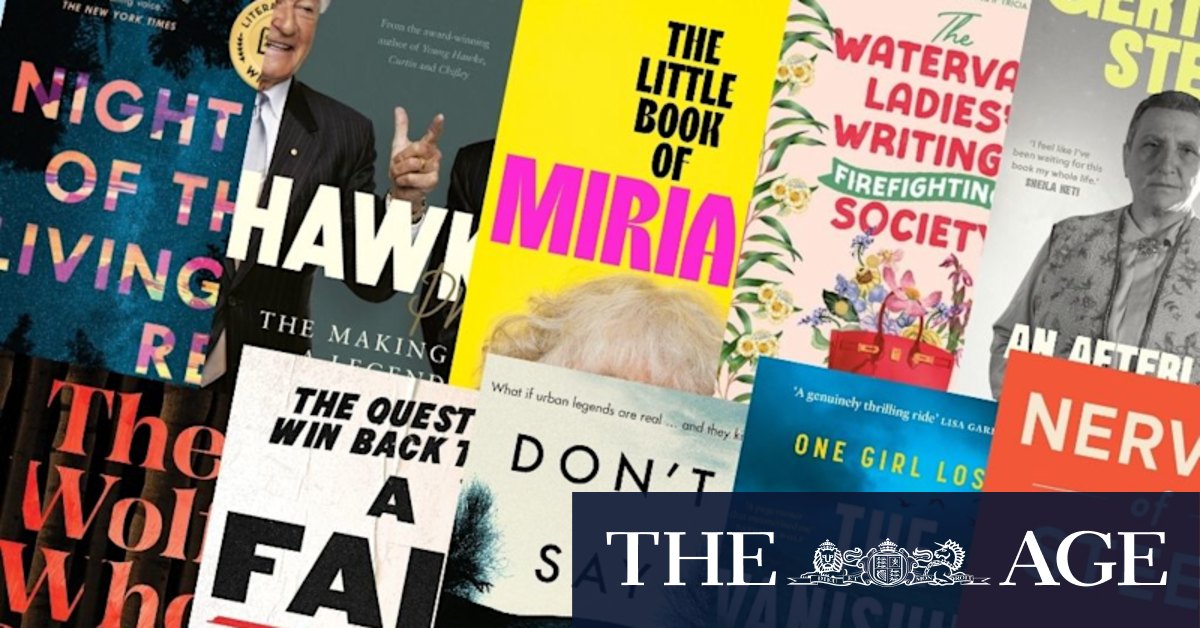Normal text sizeLarger text sizeVery large text size
This week’s books range from magical realism and female friendship to the struggle for a right to a fair day’s work and a portrait of the avant-garde American writer Gertrude Stein.
FICTION PICK OF THE WEEK
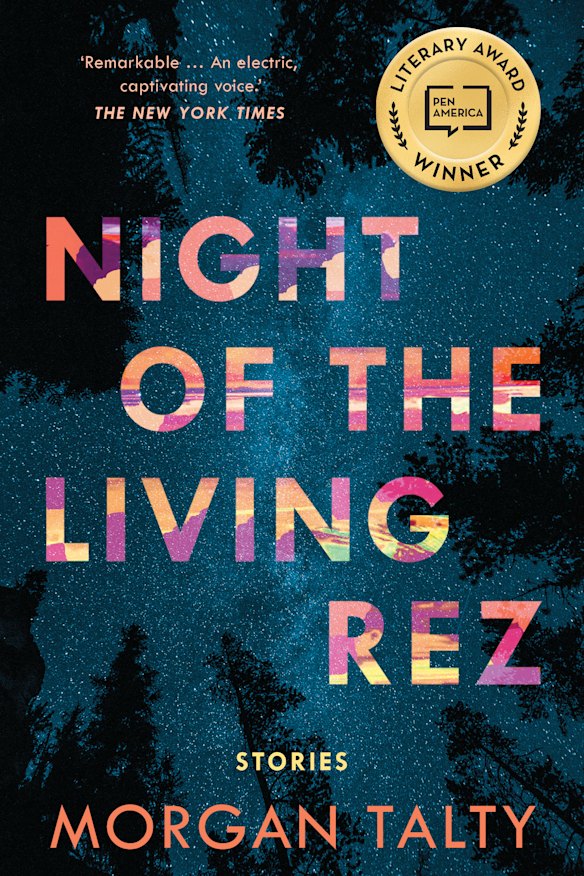
Night of the Living Rez
Morgan Talty
Scribe, $32.99
Penobscot Nation writer Morgan Talty, author of the acclaimed Fire Exit, has produced a compelling collection of short fiction. Night of the Living Rez might sound as if we’re in for schlock horror, but it’s the nightmare of colonial history and the gritty fight for cultural survival that powers this subtle, striking contemporary suite of stories. Much of the charge (and horror) in these tales is derived from the mishandling of First Nations cultural heritage. Sometimes this is innocent, as when a boy discovers a jar that holds an ancient curse that gets unleashed upon his family. Other depredations are deliberate, as when two friends plan to rob a tribal museum of priceless artefacts. Incommensurable realities intersect and untold histories beg to be spoken. A grandmother succumbing to dementia mistakes her grandson for a figure from the distant past. An attempt to cheat a drug dealer yields to a disturbing, magical realist mystery in the snow. Talty’s literary talent will be obvious to anyone who reads these delicately wrought tales, delivered with plain-spoken intensity, emotional range, and a sensitivity to the complexities of Indigenous lives in the 21st century.
The Watervale Ladies’ Writing & Firefighting Society
Mette Menzies
HarperCollins, $34.99
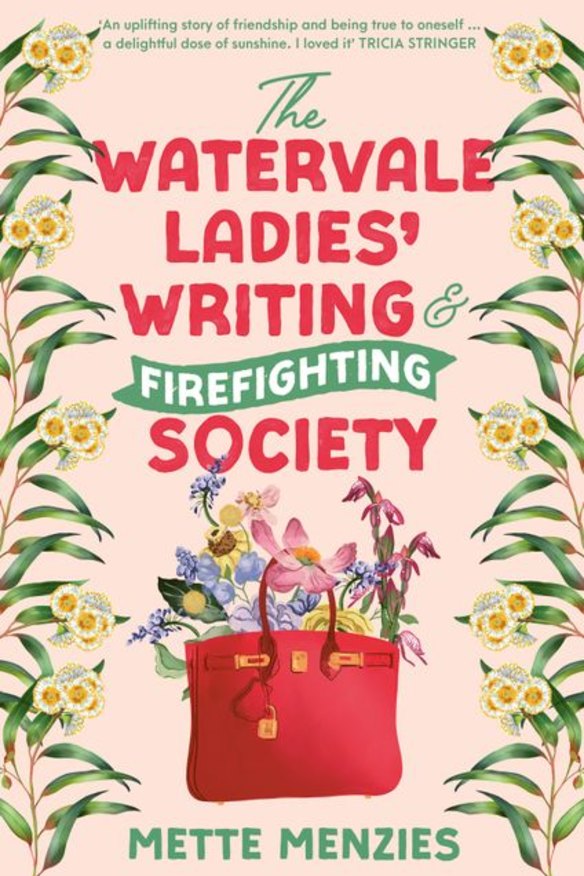
In this uplifting fiction debut, a high-flying international lawyer is compelled to adapt to a small-town lifestyle, making unexpected friends and fighting flames along the way. Called to South Australia’s wine country to close a billion-dollar deal, Tilly anticipates a fly-in, fly-out experience. Instead, she’s given a choice between staying for a month as a small-town solicitor or walking away from the deal altogether. She stays and gets drawn into the lives of three very different women – indomitable matriarch Bev Jackson, cheerful librarian Jane, and former celebrity Fenna. Each has unresolved secrets from the past and confronting them helps Tilly face her own challenges. If starting again is difficult, the process is kickstarted by the women embracing activities extraordinary to them – joining a local writing group and signing up for volunteer fire-fighting training. The novel explores issues such as infertility, parenthood and domestic violence, but it’s the portrait of female friendship – the strength, humour and wisdom found in the companionship of four women at life’s crossroads – which shines through.
The Wolf Who Cried Boy
Mark Mupotsa-Russell
Affirm Press, $34.99
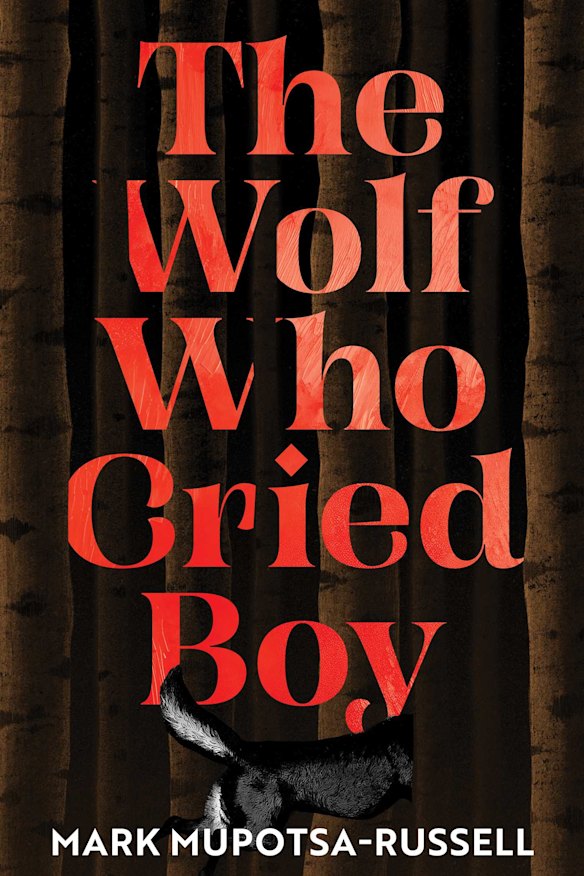
Magical powers. Six-year-old Henry has them. He is the Star Prince, his mum the Star Queen, and they’ve been running from the Wolf King, Henry’s father, for years. When news arrives that Henry’s grandmother is gravely ill, Henry and his mum travel to Brisbane – where the Wolf King lives – to see her, perhaps for the last time. A grim adult story lies underneath Henry’s childlike sense of wonder, and the enchanting fantasies he invents (based on his mother’s white lies) to explain sometimes extreme situations. It’s a novel that takes in domestic violence, corruption and abuse of power, and much of its emotional impact comes through the reader decoding the juvenile narrator’s reality as it collides with the adult world. Mupotsa-Russell has serious range as a writer: his previous novel was the bestselling black comic crime caper The Hitwoman’s Guide to Reducing Household Debt. This one’s more in the vein of Boy Swallows Universe, a tearjerker masquerading as a fantasy adventure, but is just as skilled and absorbing.
Don’t Say His Name
Rachel Givney
Ultimo, $34.99
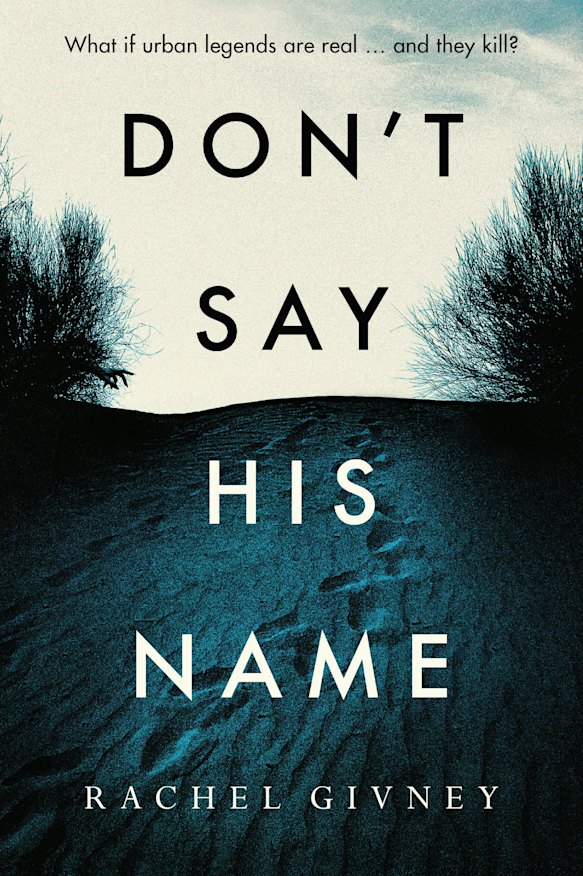
Superstition complicates this coastal murder mystery from Rachel Givney, initiated when the body of a woman is found slaughtered on the dunes near the picturesque beach town of Thoorgalla. The corpse has been marked with a strange symbol, portending the involvement, some say, of Tall Harry – a nightmare figure from urban legend who supposedly sucks the souls out of his victims. Detective Stayer doesn’t have much truck with the supernatural, though he appreciates the assistance of one Sister Catherine, a nun who doesn’t believe in malevolent entities such as Tall Harry but whose knowledge of folklore and witchcraft may provide assistance in understanding the killer. When his long-estranged sister Ruby goes missing, the case gets personal for Stayer: finding a human explanation behind the seemingly supernatural crime spree turns into an urgent race against time. Givney’s background in film and television is a mixed blessing. A superior command of pace, action, and cinematic detail comes at the expense of subtlety and depth of character; at times, Don’t Say His Name can feel more like a winning pitch for a screen adaptation than a novel.
The Vanishing Place
Zoë Rankin
MOA Press, $34.99
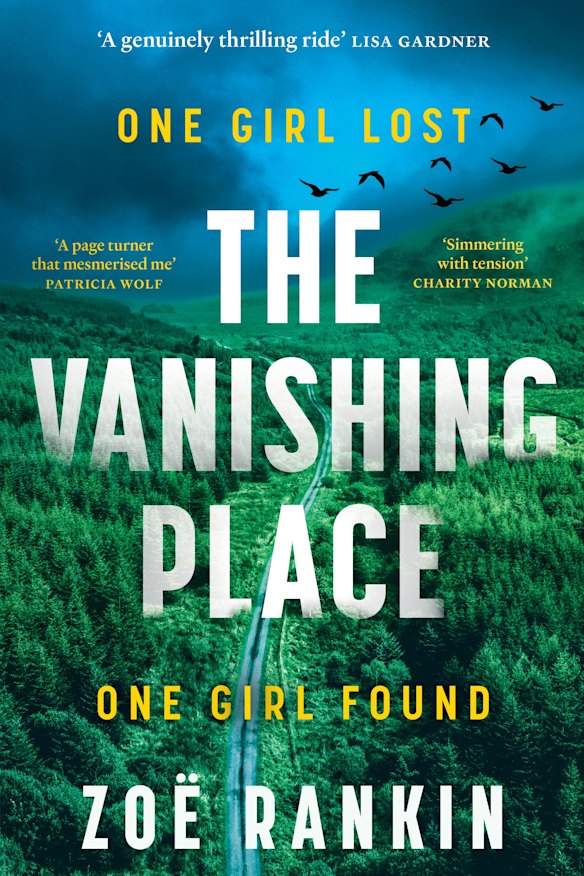
In the tiny town of Koraha on the South Island of Aotearoa New Zealand, police are baffled after a girl walks bloodied and begrimed into a store. She appears to have emerged from the wilderness, and falls mute, traumatised, after saying her name. To Effie, the girl’s emergence is peculiarly unsettling – the girl looks just like her – and Effie’s own childhood was spent with her siblings in the bush, off-grid. “Love of the land” was a pretext for horrors she has spent a lifetime trying to escape, and the potential link to her past sets Effie on a path to return to a place she never wanted to see again. The Vanishing Place swings between two timelines – the police investigation into the bush girl, and what happened to Effie decades previously – with ease, and if it’s a bit of a slow burn, the plot goes into overdrive once the set-up is complete. Rankin has crafted a dark, brooding mystery which explores the psychology of isolates who reject society and go off-grid, with paranoia and potential for abuse creeping in under the rubric of freedom.
NON-FICTION PICK OF THE WEEK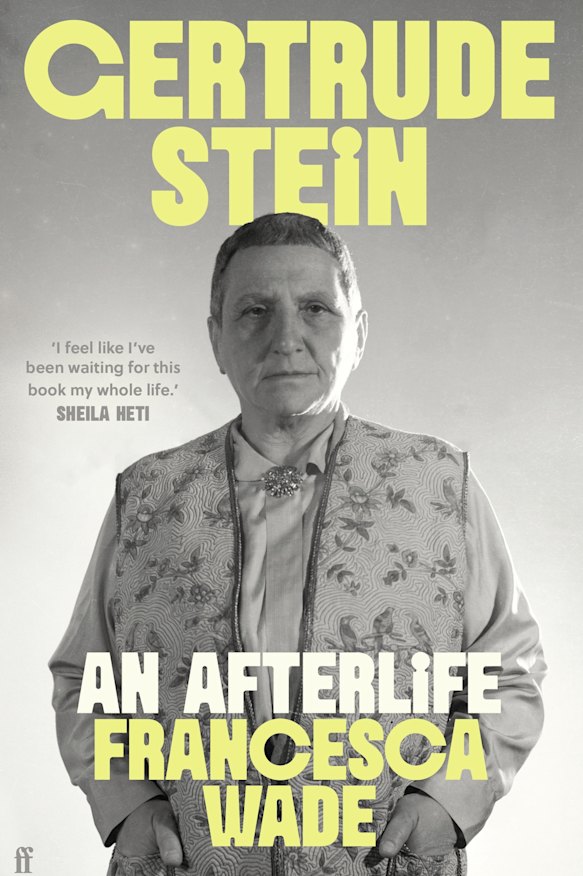
Gertrude Stein: An Afterlife
Francesca Wade
Faber, $39.99
Although avant-garde American writer Gertrude Stein spent much of her life dismissing and deriding autobiography as a genre, she eventually wrote one: The Autobiography of Alice B. Toklas, written by Stein, from Toklas’s point of view, about Stein’s life and works. As Francesca Wade points out in this intriguing study, it was a joke that broke all the rules of the genre, and became the bestseller she’d long craved for an afterlife of fame and literary recognition. Stein had always considered herself a genius and after her death her lifetime companion, Toklas, was charged with making sure everybody else knew. Wade’s book is divided into two parts, the life of Stein, her sexuality and lovers, and the luminaries of modernism she mixed with – and posterity. At the heart of it is the complex dynamic between Stein and Toklas, Stein, to all outward appearances playing the powerful genius to Toklas’s dutiful wife, Toklas often emerging as the controlling figure behind the scenes.
Hawke PM
David Day
Harper Collins, $49.99
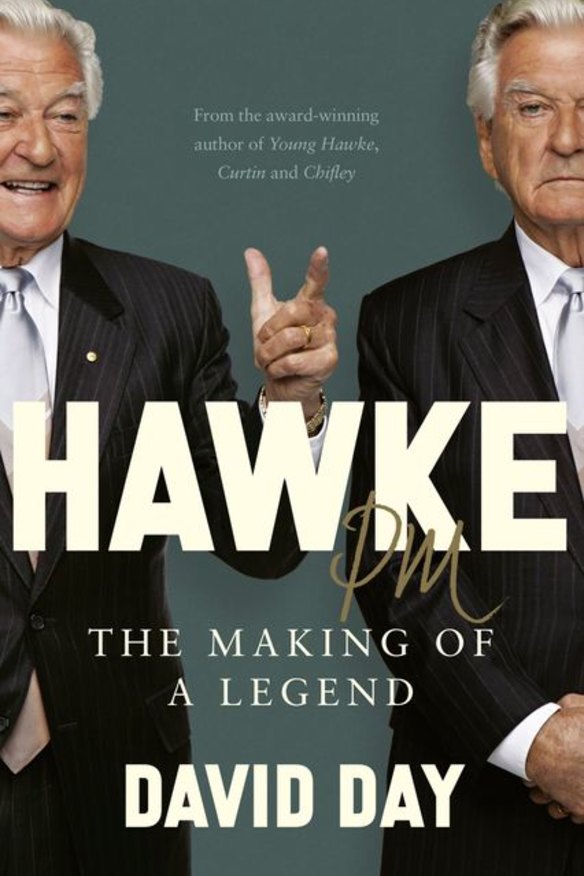
After Bob Hawke was elected ALP leader in 1983 he reflected that “it seemed like a moment of destiny”. But, as David Day’s informed, perceptive and engaging companion piece to his earlier study, Young Hawke, documents – nothing was destined. The complexity of toppling Bill Hayden, for the party’s dealership, the hidden motives of key players and the problematic nature of Hawke himself (booze, bonking and troubled marriage), could have derailed Hawke’s PM ambitions at any moment. Now it looks like it couldn’t have happened any other way – when it could have. It’s just one of the many thoughts that Day’s chronicle of the Hawke-Keating years prompts. It’s also a well-rounded chronicle of how legends are created, while also showing us the human behind the larrikin legend, as well as the women in his life: wife Hazel (who is sympathetically drawn) and his second wife, his biographer, Blanche d’Alpuget.
A Fair Day’s Work: The Quest to Win Back Time
Sean Scalmer
MUP, $34.99
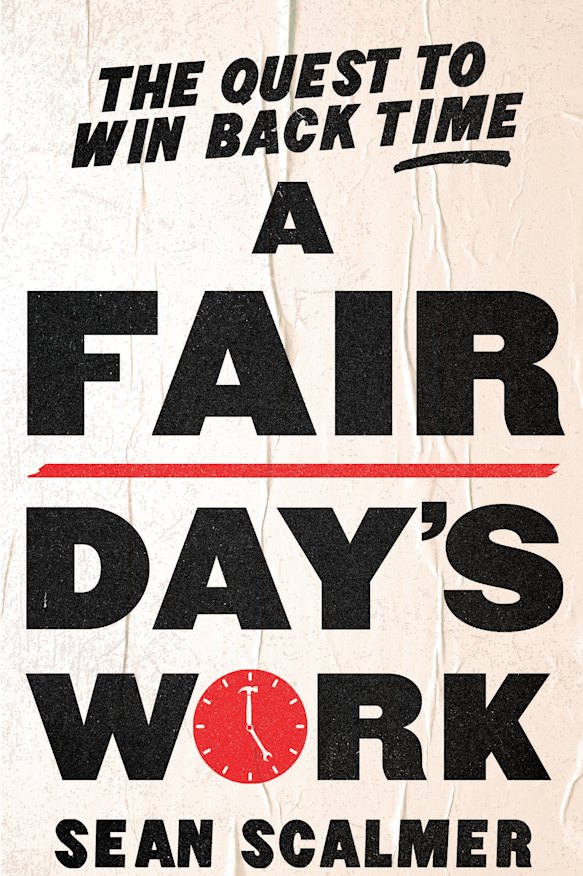
When Sean Scalmer, professor of history at Melbourne University, talks about the quest to win back time he means it in at least two ways: in relation to what constitutes a fair day’s work, as well as the history of the struggle for it in Australia, reaching back to the eight-hour day movement of the mid-1850s. Crucial to winning that pivotal fight (when workers in the UK and Europe were labouring through much longer working days), was the argument that workers were not machines but human beings with every right to a fulfilling and meaningful life. But those humanistic assumptions have, in the contemporary world, given way to the imperatives of the marketplace, and the fair day’s work movement has “stalled”. Woven into this is COVID, with the liberating aspects of working from home (along with its complications and the right to “disconnect”) – and the impact of feminism and the necessity of incorporating domestic labour into any notion of a fair day’s work. Clearly argued, timely, social history.
The Little Book of Miriam
Miriam Margolyes
John Murray, $34.99
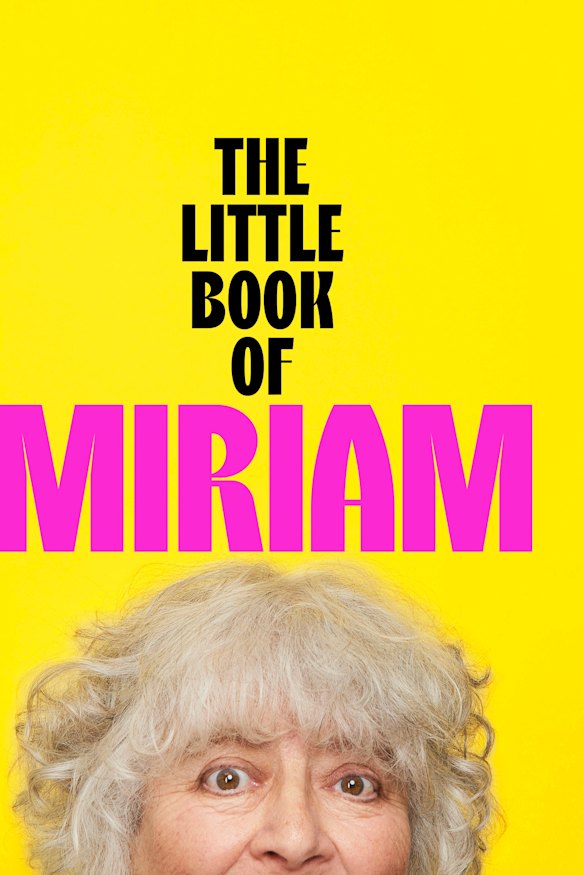
Several subjects and themes recur regularly in Miriam Margolyes’ alphabetically arranged compendium of her life’s key terms. “M” for her mother, for one, a stout, lower middle-class Jewish woman, a social climber “squeezed in the trap of class”, who eschewed “commonness” but always helped the poor. A synoptic lesson, if you like, in life’s little paradoxes. Her Jewishness also features frequently, especially her well documented anti-Zionist stance and support for Palestinians. Charles Dickens, sex in its varying, sometimes surprising forms – “H” for hand-job as well as hairbrush (creatively employed) – the body , the scariness of fame and being mobbed by teenage girls who were Harry Potter fans, and more, all combine to provide a kind of collective self-portrait that you can dip into at any alphabetical point for either a laugh or a political lesson. Just the kind of seriously comic eccentric for these times.
Nerves of Steel
Ger Post
MUP, $29.99
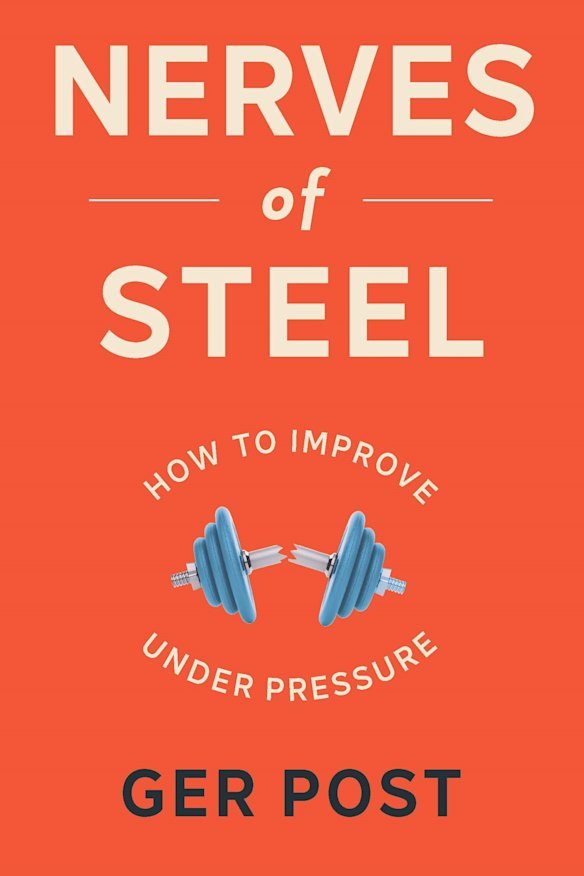
As much as anything else Post exposes the myths and false theories surrounding the whole notion of having nerves of steel – especially in sport, saying that “one size fits all solutions for stress are seldom useful”. Conventional wisdom has it that elite athletes must focus solely on the job at hand before a major event, but Post takes his cue from world champion sprinter Leo Bolt, whom he watched walk onto an arena in Berlin (just before smashing his own world record), laughing and joking with the crowd, as if he were strolling along a Jamaican beach. In fact, one important lesson is that sports people as well as working people out there in the everyday world can focus too much, impairing their efficiency. Post also goes into “choking” and the often dismissive and nasty reactions of the media, citing the example of Greg Norman giving away a huge lead in the 1996 US Masters. The Stoics, especially the notion of concentrating only on the things you can control, also come into calculations in this wide-ranging study of, among other things, how elite athletes can show us ways of dealing with critical events in everyday life.

